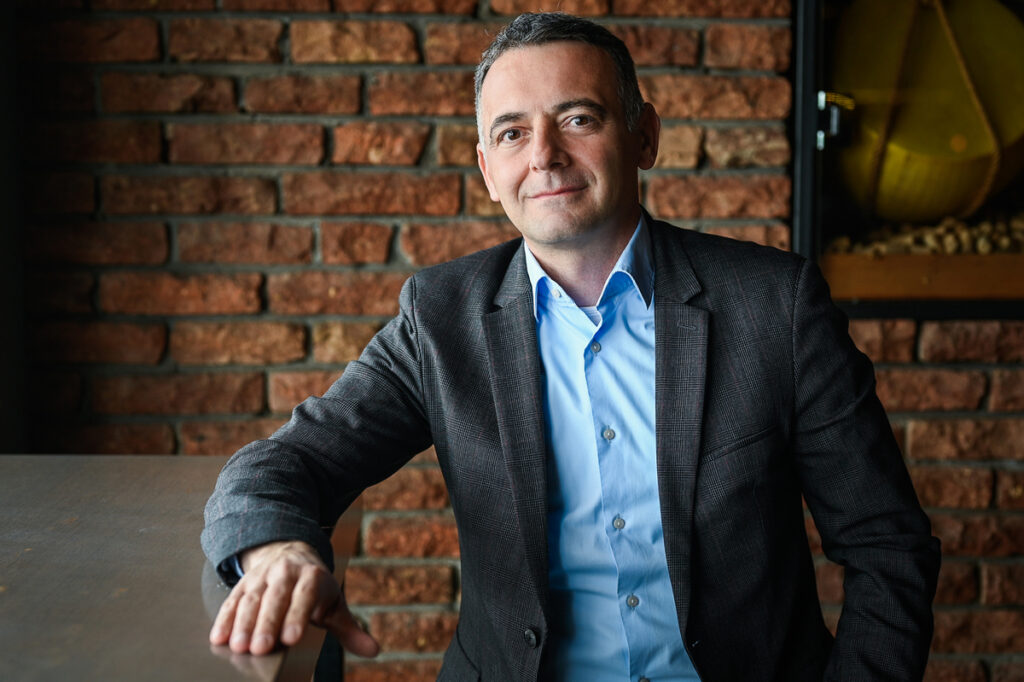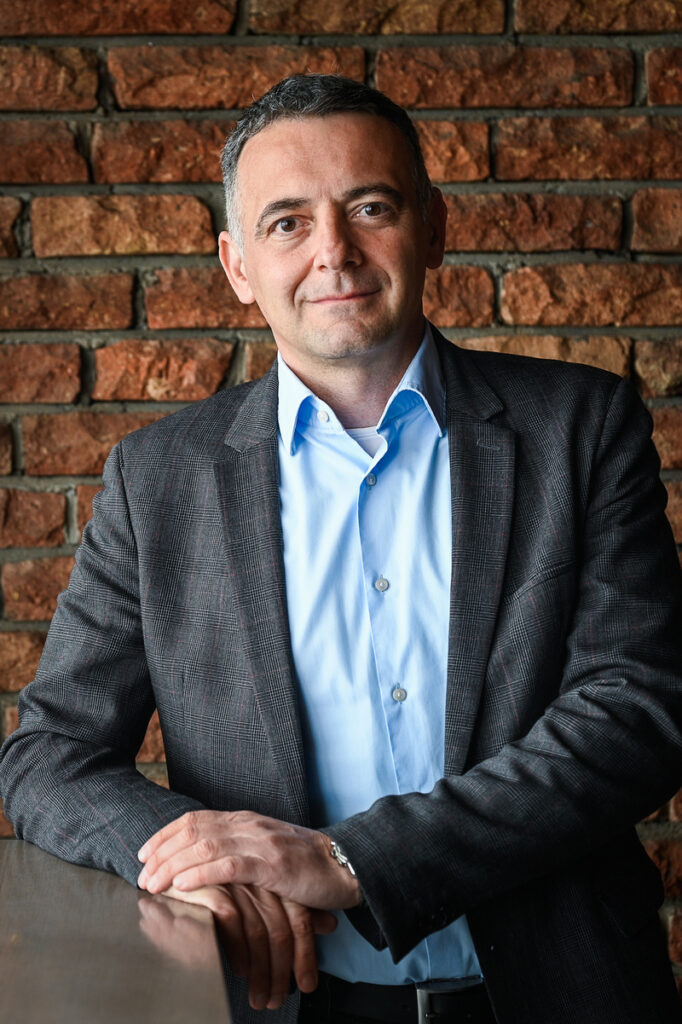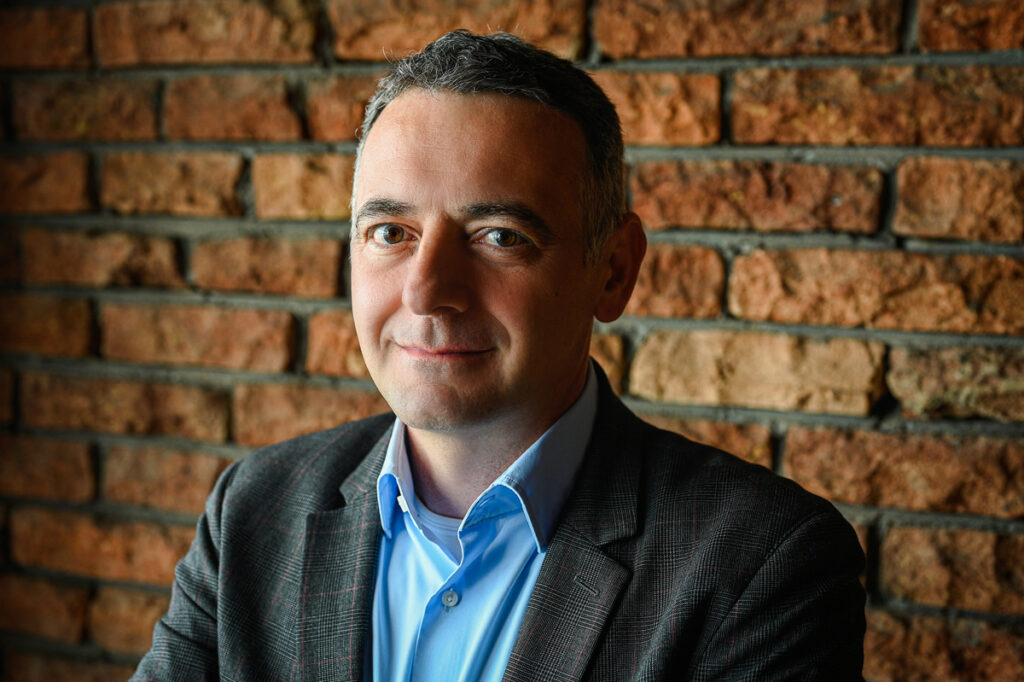Shaping a future of healthcare defined by trust, innovation and shared progress

CORPORATE INTERVIEW
Nikola Stojković
President Novartis Serbia and Montenegro
Nikola Stojković, President of Novartis for Serbia and Montenegro, speaks about how modern healthcare is being reshaped by innovation, partnerships and digital transformation. In this interview, he highlights trust, shared responsibility and timely access to advanced therapies as key elements of the healthcare system of the future.
Innovation in healthcare is meaningful only when patients feel its impact in real life
How would you describe Novartis’ position in Serbia and Montenegro today, particularly in the context of cooperation with healthcare institutions and business associations?
Our position in the region is the result of many years of investment in innovation, but also in building trust with all stakeholders in the healthcare system. Our goal is to ensure that patients in Serbia and Montenegro have access to modern therapies equal to those in the most developed countries. We are focused on making the difference in the areas that carry the greatest burden for society: cardiovascular diseases, oncology, neurology, autoimmune and rare diseases.
We believe that healthcare is not an expense, but an investment in the future. This is why we invest in partnerships with institutions and professional associations, as well as through our memberships in industry and trade associations such as Inovia, AmCham, the Swiss Serbian Chamber of Commerce and the Chamber of Commerce and Industry of Serbia, where we work together to improve both the healthcare and business environment.

What are Novartis’ key ambitions in Serbia and Montenegro in the coming years?
Our ambition is for the healthcare systems of Serbia and Montenegro to become increasingly open to innovation – not only in terms of medicines, but also new models of treatment, diagnostics and disease monitoring.
We are working to ensure that patients gain timely access to innovative therapies, while also supporting the system in preparing for their implementation. In this process, physicians, health institutions and regulatory bodies are equally important, because only through joint effort can we secure sustainable solutions.
In addition, we are investing strongly in digitalization and the education of healthcare professionals, because a modern healthcare system must be capable of learning, measuring and anticipating – to be predictive, personalized, and patient-centered.
Digitalization and artificial intelligence are increasingly transforming the way medicine is developed and applied. How does Novartis see this transformation in Serbia?
Digitalization is reshaping healthcare at its core – from research and the development of new medicines to everyday patient care. Artificial intelligence accelerates clinical studies and the discovery of new molecules, while also supporting physicians in making more precise decisions. It has the potential to improve the quality of care and the overall efficiency of the system, but it is essential that it is used responsibly, with strong respect for ethical standards and data privacy. For patients, this means faster diagnosis, better disease management and access to more personalized therapies. For the state, it means a more efficient healthcare system, more rational resource planning and long-term savings. Our role is to ensure that these technologies do not remain reserved for large markets, but are adapted to local needs. This is why we collaborate with partners across the healthcare system, in order to build domestic capacity in the field of digital health.
Trust is not declared; it is built through consistency, transparency and shared goals
Which innovations would you highlight as examples of successful implementation in Serbia and Montenegro?
We are particularly proud to have supported the introduction of the national screening programme for spinal muscular atrophy (SMA) – a programme that enables early detection in newborns and timely treatment. This represents a historic breakthrough, as a child treated within the first few weeks of life can achieve almost normal development.
In the field of cardiovascular health, we signed the Memorandum of Understanding with the BIO4 Campus, which lays the groundwork for the development of biomedicine in Serbia. Our role in such projects is not only to provide therapies, but also to share knowledge, technology and experience, with a shared objective – a healthier population in the long term.
In the field of oncology, we are developing digital platforms for collecting and analyzing real-world health data, which help physicians to select the optimal therapy and monitor treatment outcomes.
Through the combination of innovative therapies, genetics and digital technologies, our aim is to support the healthcare system in shifting from a reactive to a proactive approach – one in which disease is identified and prevented rather than treated only once it has developed.
How difficult is it to ensure timely access to innovative therapies for patients in Serbia?
Ensuring access to innovative therapies in Serbia remains a considerable challenge. The processes from a medicine’s approval to its full availability often take time – involving administrative procedures, reimbursement mechanisms, and alignment with budgetary frameworks. However, it is important to note that progress has been made in recent years: an increasing number of innovative medicines have been included on the national reimbursement list, and the dialogue between companies, institutions and regulatory bodies has become more constructive.
Still, we recognize that there is room for further improvement. Our goal is to contribute to the development of predictable and sustainable mechanisms that enable patients to access therapies more quickly, while respecting budgetary constraints and responsible planning. I believe that, through joint effort – from the state, the healthcare system and industry – we can build a system in which patients do not have to wait too long for innovation, but receive treatment at the moment when it matters most.

In addition to medicine, Novartis is also known for its commitment to social responsibility. How do you contribute to the community?
Social responsibility is not an addition to our work – it is an integral part of it. In Serbia and Montenegro, we run a number of projects focused on education, prevention and early disease detection, as well as mental health and patient support.
Our cooperation with patient organizations in areas such as breast cancer, multiple sclerosis, psoriasis, melanoma and cardiovascular diseases among others has helped to improve understanding of these conditions and to raise public awareness.
We place particular emphasis on supporting young healthcare professionals, because investment in knowledge is the most meaningful investment in the future.
As the leader of one of the most innovative companies in the world, what would you say to young people considering a career in the pharmaceutical industry?
The pharmaceutical industry is a fusion of science, technology and empathy. It is a field in which work may be indirect, but it has a profound impact on people’s health and quality of life. My message to young people is to remain curious and open-minded, to learn across disciplines, and not to fear change. Innovation does not begin in the laboratory – it begins with people who believe they can make a difference.